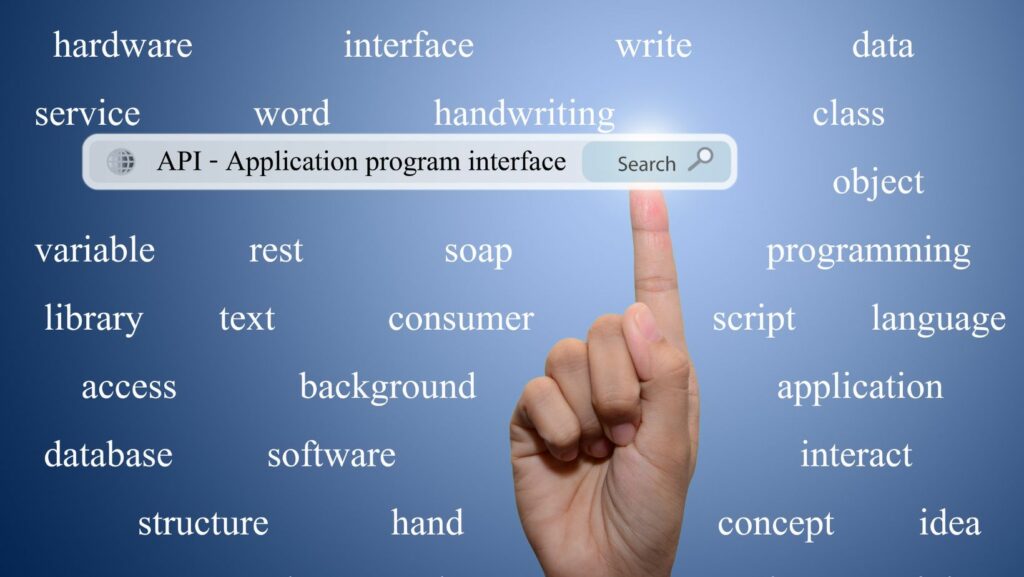Key Takeaways
- Understanding APIs is Vital: Knowledge of APIs is essential for developers to create seamless communication between software systems, improving user experiences.
- Types of APIs: Familiarity with API types like REST, SOAP, and GraphQL aids in selecting the right framework for specific applications.
- Security Practices: Mastery of authentication mechanisms such as OAuth and API keys is crucial for securing API communications and protecting sensitive data.
- Enhanced Integration Skills: API learning cultivates skills necessary for integrating various systems, leading to more robust and efficient software solutions.
- Increased Productivity: Proficiency in APIs enables developers to streamline workflows, reuse components, and adapt quickly to project changes.
- Utilize Resources: Leverage online courses, documentation, and community support to eliminate challenges and enhance API learning and implementation.
In today’s tech-driven world, understanding APIs (Application Programming Interfaces) has become essential for developers and businesses alike. APIs serve as bridges that allow different software systems to communicate, making them pivotal in creating seamless user experiences. As digital transformation accelerates, mastering API learning is no longer just an option; it’s a necessity.
API learning empowers individuals to harness the full potential of technology, enabling them to build innovative applications and integrate various services. With the right knowledge, anyone can navigate the complexities of APIs, enhancing their skills and career prospects. Whether one is a seasoned developer or a curious beginner, diving into API learning opens up a world of possibilities in software development and digital solutions.
API Learning
API learning encompasses gaining knowledge and skills related to Application Programming Interfaces. This education enables individuals to understand how APIs work, their design, and implementation. Knowledge of APIs serves various purposes, including enabling data exchange, enhancing application functionality, and fostering system interoperability.
Key components of API learning include:
- Types of APIs: Understanding different types such as REST, SOAP, and GraphQL helps in selecting the appropriate method for specific applications.
- Authentication Mechanisms: Learning about authentication methods, like OAuth and API keys, ensures secure communication between clients and servers.
- Documentation: Familiarity with API documentation aids in proper usage and implementation, making it easier to interact with different APIs.
- Testing Tools: Being proficient in API testing tools like Postman or Swagger enhances the capability to verify endpoints and functionality.
API learning significantly benefits developers, as it expands their technical skills, allowing them to create more dynamic applications. Additionally, businesses gain a competitive edge through the effective integration of APIs, leading to streamlined operations and improved customer experiences. Overall, API knowledge plays a crucial role in shaping modern software development.
Key Concepts in API Learning

API learning encompasses essential knowledge needed to effectively design, implement, and integrate Application Programming Interfaces. Grasping these key concepts enhances technical skills and promotes innovative application development.
Understanding APIs
Understanding APIs involves recognizing their role in facilitating communication between software systems. APIs serve as intermediaries that enable different applications to interact seamlessly. This interaction can involve data retrieval, updates, or executing functions. Through API protocols, developers connect their applications, thereby expanding functionality and enhancing user experiences. Proficiency in API design patterns, such as endpoints and request-response cycles, reinforces effective integration strategies.
Types of APIs
Types of APIs vary based on their design and usage. Key types include:
- REST (Representational State Transfer): REST APIs use standard HTTP methods for operations. They emphasize stateless communication and promote the use of resources identified by URLs.
- SOAP (Simple Object Access Protocol): SOAP APIs rely on XML for messaging. They enforce strict standards, making them suitable for complex transactions requiring high security.
- GraphQL: GraphQL APIs enable clients to request specific data, improving efficiency. It allows developers to define the structure of the response, reducing over-fetching and under-fetching of data.
Understanding these API types equips developers with the ability to select the appropriate framework based on project requirements, ensuring effective implementation and integration.
Benefits of API Learning

API learning provides numerous advantages, enhancing both technical skills and organizational effectiveness. By mastering APIs, developers can leverage integration capabilities and improve productivity.
Enhanced Integration Skills
API learning develops integration skills necessary for connecting various software systems. Understanding different API types—such as REST, SOAP, and GraphQL—enables developers to choose suitable frameworks for specific projects. Mastery over authentication methods like OAuth and API keys ensures secure interactions between services. Proficiency in tools such as Postman or Swagger enhances testing and documentation capabilities. Overall, improved integration skills lead to more robust software solutions that effectively communicate across platforms.
Improved Developer Productivity
API learning significantly boosts developer productivity. Familiarity with APIs allows for faster application development through reusable components, streamlining workflows and reducing redundancy. Knowledge of common API practices minimizes time spent troubleshooting, enhancing overall efficiency. Developers proficient in API design and implementation techniques can quickly adapt to changing project requirements, ensuring timely delivery of features. Increased productivity translates into higher-quality applications and better user experiences.
Challenges in API Learning

API learning presents various challenges that can hinder developers and businesses in effectively utilizing these technologies. Understanding and addressing these obstacles is essential for successful API integration and implementation.
Managing Complexity
Managing complexity arises from the need to navigate diverse API types and their respective architectures. Developers encounter different protocols and data formats, which can lead to confusion. For instance, REST, SOAP, and GraphQL APIs present unique methods of data handling and interaction. To efficiently manage this complexity, developers must develop a thorough understanding of these frameworks, ensuring they select the right API for their specific needs. Furthermore, continuous exposure to various API ecosystems and strong versioning practices aid in reducing integration complications, promoting smoother collaboration between systems.
Security Concerns
Security concerns pose significant challenges in API learning, as improper implementation can expose applications to various vulnerabilities. APIs often work with sensitive data, making authentication and authorization critical. Developers must master various security protocols, such as OAuth and API key management, to protect their applications effectively. Additionally, developers need to stay updated on best practices, including input validation and rate limiting, to mitigate risks like data breaches and DDoS attacks. Understanding these principles helps in creating secure APIs that protect both user information and organizational assets.
Tools and Resources for API Learning
Numerous tools and resources facilitate effective API learning, empowering developers and businesses to enhance their skills and integration capabilities.
Online Courses and Tutorials
Many platforms offer structured online courses and tutorials specifically focused on APIs. Resources include:
- Coursera: Features courses from universities covering REST, SOAP, and GraphQL APIs.
- Udacity: Provides nanodegree programs with hands-on projects focused on API usage and design.
- Codecademy: Offers interactive lessons on API interaction, including real-world use cases.
- Pluralsight: Delivers expert-led video courses on API development and testing.
These courses present valuable insights through video lectures, interactive quizzes, and practical assignments.
Documentation and Community Support
Access to quality documentation and community support is essential for API learners. Key resources include:
- API Documentation: Most API providers offer comprehensive documentation that details endpoints, request and response formats, and authentication methods.
- Stack Overflow: A vibrant community where developers can ask questions and share solutions related to specific API challenges.
- GitHub: Hosts numerous API projects and repositories, allowing developers to explore code examples and collaborate on open-source initiatives.
- Reddit: Subreddits like r/programming and r/webdev provide platforms for discussions and sharing best practices in API development.
Utilizing these resources fosters a deeper understanding of API concepts and encourages engagement with the developer community. API learning is essential in navigating today’s tech landscape. By mastering the intricacies of APIs, individuals can unlock new career opportunities and drive innovation within their organizations. The ability to integrate various services and create seamless applications not only enhances technical skills but also contributes to overall business efficiency. As developers embrace the challenges of API learning, they position themselves at the forefront of digital transformation. Utilizing the right tools and resources can make this journey more manageable and rewarding. Engaging with community support and quality documentation further enriches the learning experience, fostering a deeper understanding of API concepts. Ultimately, investing in API knowledge equips developers and businesses to thrive in an increasingly interconnected digital world.



